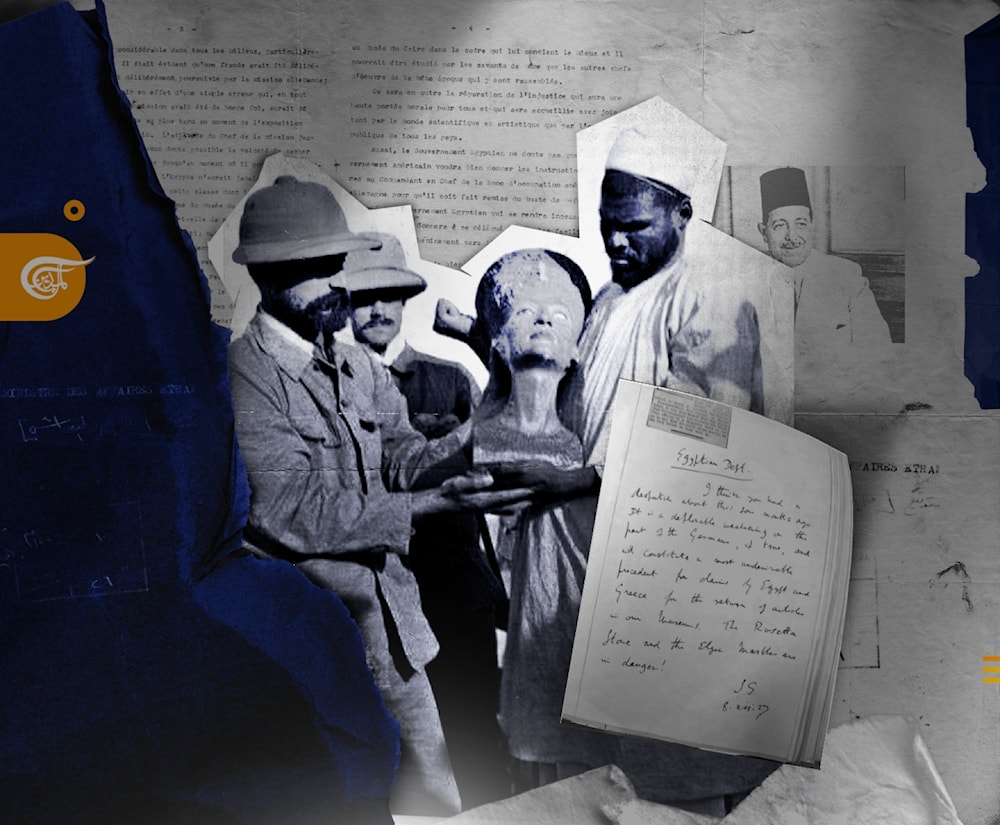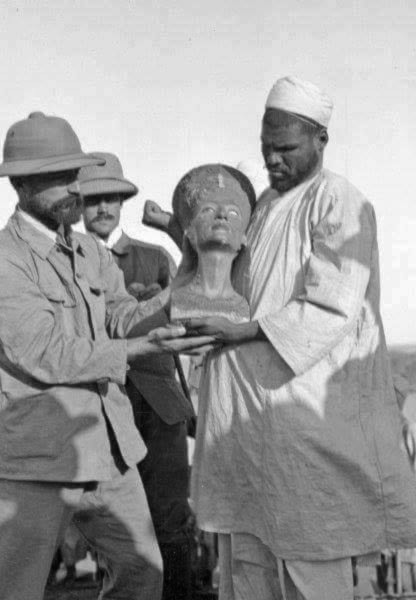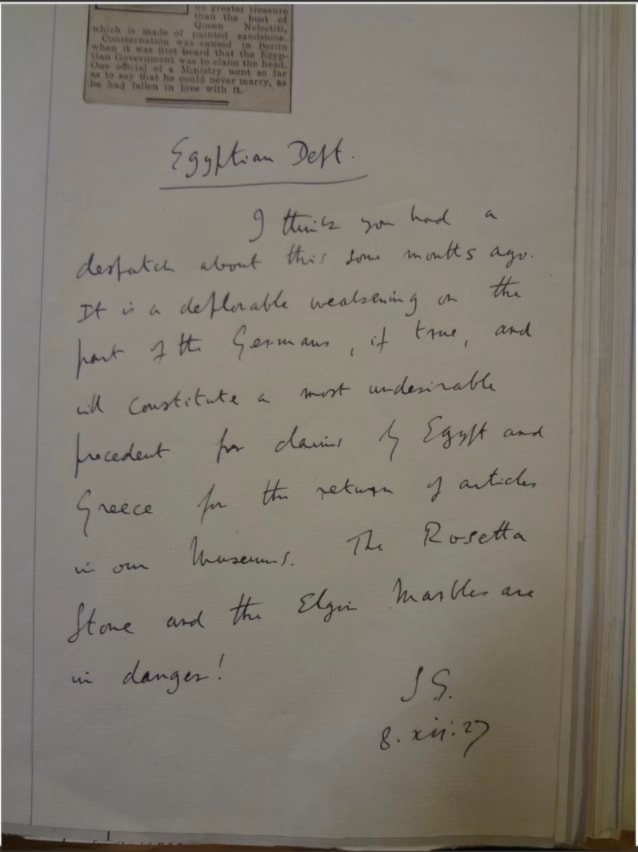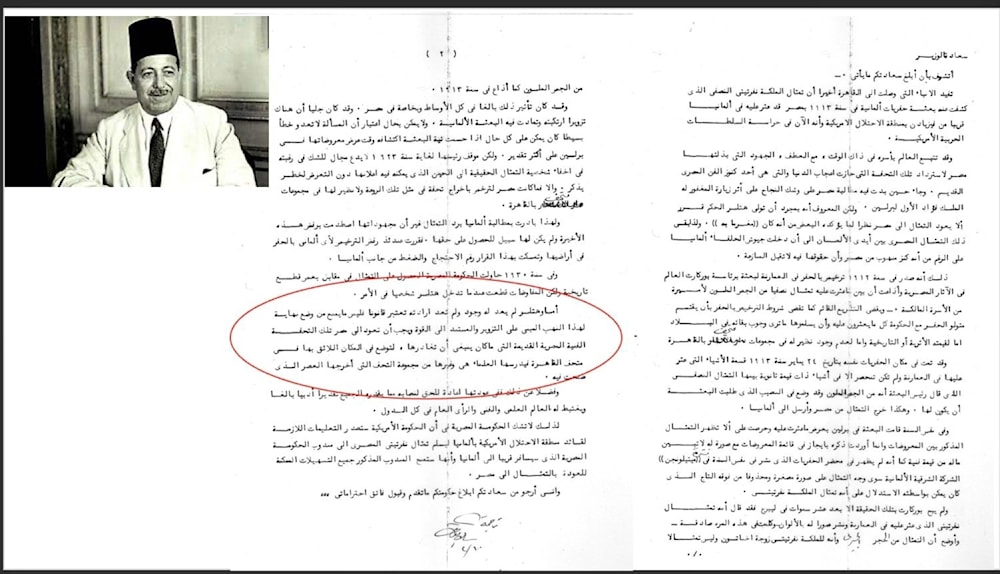100 years later: Will Egypt repatriate Nefertiti's bust from Germany?
After Germany forged documents to take Nefertiti's bust, will Egypt succeed in repatriating it? And what of the renovation of the pyramids?

"A Beautiful Woman Has Come" is what Queen Nefertiti's name means, one of Ancient Egypt's most renowned queens and alledgedly the most beautiful queen to grace the world; however, that queen is thousands of miles away from home after she was taken from Egypt's Tell el-Amarna to Germany over 100 years ago.
100 years outside of Egypt

The bust of Nefertiti, wife of King Akhenaten, was unearthed in 1912 by a German archaeological expedition in the Minya Governorate of Egypt. The expedition was led by Ludwig Borchardt and funded by German national James Simon, the president of the German Oriental Society at the time.
Borchardt hid the bust at the time of its discovery from the Egyptian expedition, before forging its records during the division of the archeological finds so that Germany could acquire it.
Over the course of more than 100 years, successive Egyptian governments have demanded the return of the bust. Still, all attempts have failed, sometimes for political reasons and other times due to the intransigence of the German side.
However, Egyptologist Monica Hanna, who hails from Nefertiti's birthplace, reinstigated the quest to repatriate the bust, looking for documents dating back over 100 years that are expected to prove Egypt's right to regain it, which she documented in a doctoral dissertation she worked on since 2018 and published in the International Journal of Cultural Property in December 2023.
Why Nefertiti's bust?

Although the movement for the restitution of antiquities has been active since the 1970s, in the last ten years, Egyptians have become aware that more than 30% of their antiquities were smuggled to Europe and the US. Some of these pieces are sold at public auctions, and one of those precious pieces is the bust of Nefertiti.
In an interview for Al Mayadeen, Hanna says that she chose to research the restitution of the bust of Nefertiti because she considered it a symbol of Egyptian women, and that the belle should return to her country after being taken through fraud and deception. Egypt has been attempting to recover the statue since the 1920s, and there is an archive of documented and verified correspondence with several parties that Egypt keeps in the National Archives. Hanna dug through these documents, bringing them to light, and demanding the Egyptian antique once again.
The Egyptology professor believes that the restitution of the bust of Nefertiti would create a precedent that would enable Egypt to recover the remainder of its antiquities later. She sees that her doctoral dissertation "will change the narrative about the bust of Nefertiti, that of it being legally present in Germany," as claimed by Friederike Seyfried, director of the Egyptian Museum in Berlin, where the bust of the ancient Egyptian queen is currently located.
Repatriation to cause a headache

Hanna has documents that prove the correspondence between the director of the British Museum and the British ambassador in Berlin in the 1920s to stop and obstruct negotiations with Egypt and hinder the recovery of the bust of Nefertiti. This is because retrieving the bust would pave the way for Egypt to demand the restitution of all their antiquities, including the Rosetta Stone, which has been in the British Museum since 1802, and other antiquities acquired by the British after Napoleon's defeat.
The bust of Nefertiti was smuggled out by Borchardt when he hid it from the committee tasked with the division of the archeological finds, and claimed it was an unimportant statue of a princess from Tell el-Amarna made of gypsum. Despite the change in the political circumstances over the past century in Egypt and Europe, the colonial mentality, according to Monica Hanna, persists, as the former colonial power still refuses to return the bust. This remains the case despite Egypt's demands and threats to cease German excavations and declassify the correspondence related to the bust of Nefertiti exchanged between the Egyptian government and the Allied forces after Germany lost the war.
However, all these attempts were met with failure.
Different parties demand bust's return
The demands for the repatriation of the bust of Nefertiti did not stop, but what re-opened the old wound was the January 2011 revolution, when a campaign titled "Nefertiti Travels" came to be in 2012, launched by German cultural associations which handed out posters with a picture of the bust and the sentence "return to sender" written on them.
Former archaeologist and Egyptian Antiquities Minister Zahi Hawass believes the bust was stolen from Egypt because Borchardt forged the documents, as there was a law that stipulated that any royal piece of limestone may not leave Egypt. Therefore, the German scholar claimed the piece was made of gypsum, and then proceeded to hide it in his house for 10 years.
Hawass repeatedly the return of the bust of Nefertiti, so much so that in 2005 he asked UNESCO to return it, then in 2007 he threatened to ban Egyptian antiquities exhibitions in Germany if Berlin did not lend the bust of Nefertiti to Egypt, but to no avail. Hawass then renewed his demand again in 2012 so that Egypt would have the bust when the new Egyptian museum was opened near the Giza pyramids.
Although nothing could force the German side to return the statue, Monica Hanna believes that German public opinion, which has recently changed, especially among the young generation, may weigh in on this issue.
She also said Egypt would make political and diplomatic efforts in the near future, based on her dissertation, to pressure Germany and demand the repatriation of the bust.
Hanna believes that the efforts made by the public in Egypt and even in Germany will immensely help repatriate the head of the Egyptian queen, as diplomatic efforts alone are not enough.
Despite the effort that Hanna made in her dissertation, which was published on the website of the University of Cambridge, she believes one key issue that may hinder the return of the statue is the unstable political conditions in Egypt and the Arab world. Despite the fact that Egypt has had more powerful governments in the past 70 years, Germany, at the time, played a pivotal role in the Arab-Israeli conflict.
Are the pyramids being tiled or renovated?
Just as Egyptian antiquities abroad receive attention, those in Egypt do, too. Egypt's pyramid hold a prestigious position, not only because they are one of the Wonders of the World, but also because they are a distinctive cultural and civilizational landmark that indicates the ancient Egyptians' skill in building, constructing, engineering, and more. But recently, and without prior warning, Egyptians were surprised by a government announcement of a new project to restore the Pyramid of Menkaure. The project was described by Hanna as "tiling the pyramid" or "encasing it".
Hanna did not see the significance of this project, especially since its prospects are not based on any scientific studies, and archaeologists have not been consulted about its feasibility.
Hanna argues there is no benefit to be expected from it, as there is nothing wrong with the pyramid's current state. However, she hopes that the discussion that took place on the issue will be the beginning of new legislation limiting the Ministry of Antiquities' authority to do whatever it pleases with Egyptian archeological artifacts without consulting with specialists.
Recently, the Egyptian government temporarily suspended work on the pyramid restoration project, pending a decision by a specialized committee that includes Egyptian and foreign archaeologists that will issue a report on whether or not to proceed with the project.
Sent from my Linux system.
No comments:
Post a Comment